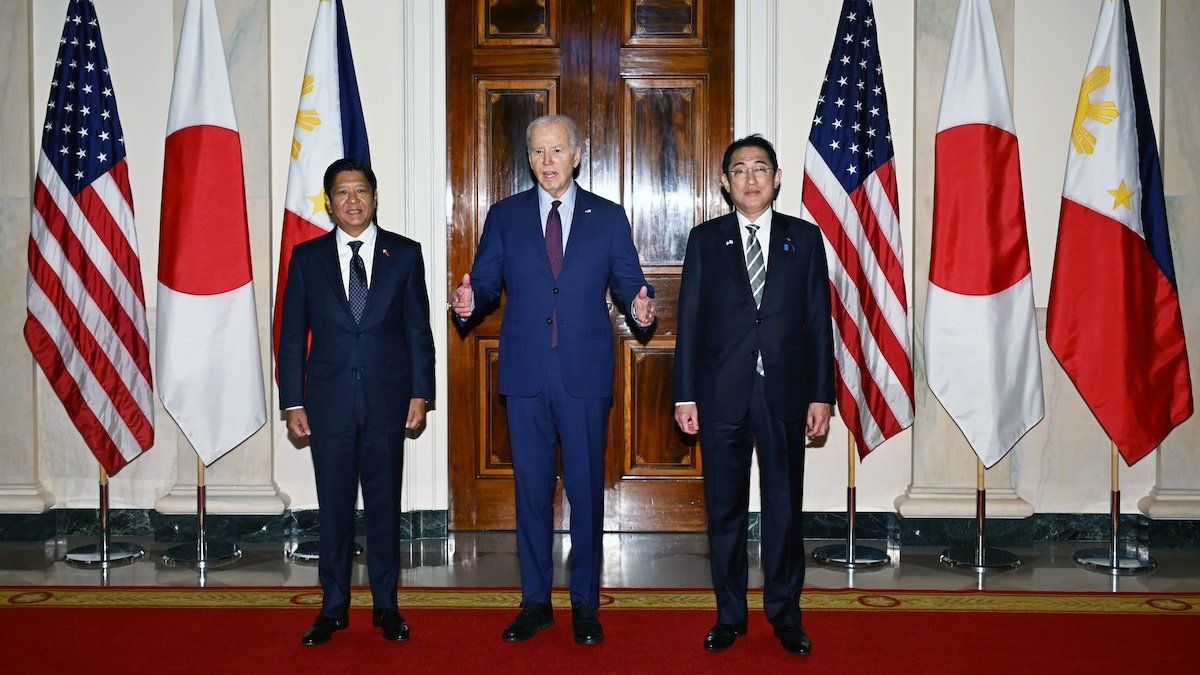Washington and Tokyo promised Manila they would help secure its seas and upgrade its infrastructure at their trilateral summit in Washington on Thursday — all big gestures, but what do they look like from Beijing?
Political winds have shifted against China in the Philippines since President Ferdinand Marcos Jr. came to power in June 2022. His predecessor, Rodrigo Duterte, allegedly sealed a secret deal with China that is now at the center of a dangerous conflict in the South China Sea.
Duterte allegedly agreed not to send reconstruction supplies to a beached ship that Manila uses to control the disputed South Thomas Shoal. Marcos said Wednesday he was “horrified” by any deal that tells Manila what it can do on its own territory, but his attempts to resupply the hulk in March were intercepted by Chinese ships, resulting in injuries. If an incident like this turns deadly, it could spark a war that brings in America and Japan, hence the show of unity in Washington.
Beijing also sees the South Thomas Shoal as a sovereignty issue, and nothing Joe Biden or Fumio Kishida promised today is likely to change China’s tune. China’s Foreign Ministry spokeswoman Mao Ning on Thursday reiterated warnings against violating Beijing’s claims in the South China Sea.
